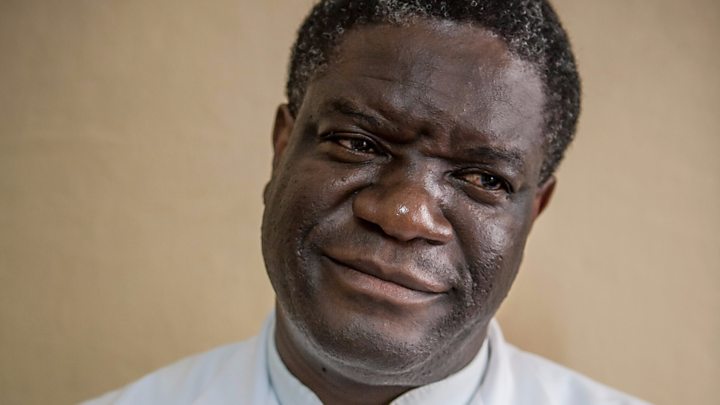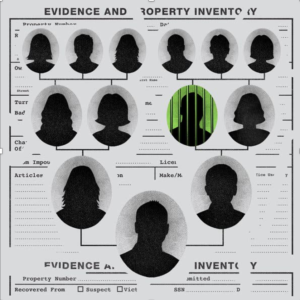In what has been called the “rape capital of the world” by a top UN official, Dr. Denis Mukwege offers hope to women whose attacks destroyed their bodies and now their lives. Before filling a desperate need and specializing in rape trauma surgery, Dr. Mukwege aspired to help women of the Democratic Republic of Congo (DRC) by providing better maternity care. In the DRC, one percent of women die during childbirth (to put it in perspective that is 1 for every 100 which makes Congolese women 8 more times likely to dye than in “developed countries,” where the number is on average of 12 in every 100,000).1 However, shortly after he founded the Panzi Hospital in 1999, Dr. Mukwege’s life took an entirely different course when his first patient was admitted. Instead of looking to have a baby, she sought treatment after suffering a rape where the assailants, from one of the many military groups in the DRC, had shot her in the genitals.2 Shortly after this event, the hospital cared for forty-eight baby girls, all raped by a local mans army, one of the tens of military, paramilitary, rebels, and foreign militant groups who use terror to displace locals and refugees in an attempt to secure natural resources.3 Luckily, these particular rapes stopped after the hospital and other human rights groups convinced a military court to prosecute the case.

Though Dr. Mukwege did not realize it at the time, founding his hospital in Eastern Congo would help him “become the world’s leading specialist in the treatment of wartime sexual violence and a global campaigner against the use of rape as a weapon of war.”4 Caring for more than 3,500 women per year, and sometimes up to 10 women a day, Dr. Mukwege, as well as 370 doctors, nurses and support staff, do more than simply repair women physically, they also work to improve their lives in many meaningful ways.5 They follow a five-pillar method. The hospital works with each woman to provide physical medical treatment, psycho-social therapy, socioeconomic support and training, community reintegration and, finally, legal assistance in done in the order listed. A senior advisor to Dr. Mukwege, Elizabeth Blackney, describes this program as:
“Once [women] get through [their] psycho social and medical healing, [they] move on and work with our socioeconomic pillar [to] learn literacy and numeracy and education. [Women] have a safe space to learn vocational skills. And then we of course provide legal aid and assistance to help people get justice.”6
This work is not done without risk, however, and, in 2012, shortly after giving a speech at the United Nations in which he called for an end to the corruption within the government of the DRC, and stated not enough was being done to stop “an unjust war that has used violence against women and rape as a strategy of war,” five armed men stormed the Mukwege family compound in an attempt to assassinate Dr. Mukwege, his wife, and two daughters.7 While Dr. Mukwege and his family survived, his trusted friend and bodyguard, Joseph Bizimana, died protecting the family.8

Though he fled to Belgium, he returned to the DRC not long afterwards, when women of the DRC sold their harvests and raised money to buy Dr. Mukwege and his family plane tickets back. When asked about his return, Dr. Mukwege told the British Broadcasting Network that “[a]fter that gesture, I couldn’t really say no. And also, I am myself determined to help fight these atrocities, this violence. My life has had to change, since returning. I now live at the hospital and I take a number of security precautions, so I have lost some of my freedom.”9 Despite the danger to his own life, Dr. Mukwege continues to transform the lives of many Congolese women in powerful, positive, and lasting ways. He is the light for thousands of women and continues to champion for the protection of women from current and future horrors that are the hallmarks of the conflict in the DRC since the mid 1990s. Proof of his incredible impacts is a woman named Sarah. Her attackers, after slaughtering her village, tied her to a tree where she was brutally raped by different men for days. When she arrived at the hospital, she was in critical condition, unable to even stand on her own. But, as each day passed, her will to live became stronger, and “[t]oday, Sarah is a beautiful, smiling, strong and charming woman…[who] runs her own business…bought a plot of land…has built a little house [and] is independent and proud.”10 For these efforts and all of his contributions, in October of 2018, he was announced as the co-recipient to the Nobel Peace Prize with Nadia Murad “for their efforts to end the use of sexual violence as a weapon of war and armed conflict.”11
- Jackson Sinnenberg, “‘Dr. Miracle’ Is The Co-Recipient Of The Nobel Peace Prize,” NPR, October 05, 2018, Accessed December 06, 2018, https://www.npr.org/sections/goatsandsoda/2018/10/05/654699946/dr-miracle-is-the-co-recipient-of-the-nobel-peace-prize; “Maternal Mortality,” World Health Organization, February 16, 2018, Accessed December 06, 2018, https://www.who.int/news-room/fact-sheets/detail/maternal-mortality. ↵
- Jackson Sinnenberg, “‘Dr. Miracle’ Is The Co-Recipient Of The Nobel Peace Prize,” NPR, October 05, 2018, Accessed December 06, 2018, https://www.npr.org/sections/goatsandsoda/2018/10/05/654699946/dr-miracle-is-the-co-recipient-of-the-nobel-peace-prize; Dr. Denis Mukwege, “The Nobel Peace Prize 2018,” NobelPrize.org, Accessed April 07, 2019, https://www.nobelprize.org/prizes/peace/2018/mukwege/55721-denis-mukwege-nobel-lecture-2/. ↵
- Mewiga Baregu, “Congo in the Great Lakes Conflict,” In Security Dynamics in Africa’s Great Lake Region, edited by Gilbert M. Khadiagala, 59-79. (Boulder: Lynne Rienner Publishers, Inc., 2006); Dr. Denis Mukwege, “The Nobel Peace Prize 2018,” NobelPrize.org, Accessed April 07, 2019, https://www.nobelprize.org/prizes/peace/2018/mukwege/55721-denis-mukwege-nobel-lecture-2/. ↵
- “Dr Denis Mukwege,” Dr. Denis Mukwege Foundation, Accessed December 06, 2018, https://www.mukwegefoundation.org/story/dr-denis-mukwege/. ↵
- “Nobel Peace Prize Winner: Denis Mukwege from DR Congo,” BBC News, October 05, 2018, Accessed December 06, 2018, https://www.bbc.com/news/world-africa-45759304. ↵
- Sinnenberg, Jackson, “‘Dr. Miracle’ Is The Co-Recipient Of The Nobel Peace Prize,” NPR, October 05, 2018, Accessed December 06, 2018, https://www.npr.org/sections/goatsandsoda/2018/10/05/654699946/dr-miracle-is-the-co-recipient-of-the-nobel-peace-prize. ↵
- “Dr Denis Mukwege,” Dr. Denis Mukwege Foundation, Accessed December 06, 2018, https://www.mukwegefoundation.org/story/dr-denis-mukwege/. ↵
- “Nobel Peace Prize Winner: Denis Mukwege from DR Congo,” BBC News, October 05, 2018, Accessed December 06, 2018, https://www.bbc.com/news/world-africa-45759304. ↵
- Sinnenberg, Jackson, “‘Dr. Miracle’ Is The Co-Recipient Of The Nobel Peace Prize,” NPR, October 05, 2018, Accessed December 06, 2018, https://www.npr.org/sections/goatsandsoda/2018/10/05/654699946/dr-miracle-is-the-co-recipient-of-the-nobel-peace-prize. ↵
- Dr. Denis Mukwege, “The Nobel Peace Prize 2018,” NobelPrize.org, Accessed April 07, 2019, https://www.nobelprize.org/prizes/peace/2018/mukwege/55721-denis-mukwege-nobel-lecture-2/. ↵
- “The Nobel Peace Prize” 2018, NobelPrize.org, Nobel Media AB 2019, (Accessed 7 Apr 2019), <https://www.nobelprize.org/prizes/peace/2018/summary/>. ↵



56 comments
Mariah Cavanaugh
Your article evoked many feelings, everything from joy to heartbreak. Dr. Denis Mukwege has created a place of refuge for these women and children who are suffering from PTSD. Dr. Mukwege has put these women’s well being about the danger to his own life, we need more people like this. Thank you for writing such a beautiful and inspirational story.
Diamond Davidson
This article is straight to the point and well-written. The video was a nice touch to give me and others a visual of what he did. It’s crazy to even believe that women in the DRC are being abused and it was great to know that someone like Dr. Denis Mukwege in the world to help these women mentally and physically. It makes sense for why they would call him “Doctor of Miracles.” Great article!
Fatima Navarro
What a courageous and selfless man. It’s so inspiring seeing that he went back tot he DRC knowing well that it was dangerous, but he knew that women were in far more danger everyday. Sometimes people who know they can find “more” success outside third-world countries, leave and go in search of a “wealthier” country to find better opportunities that pay off well. Yet, Dr. Mukwege loves his job and really wishes to make a difference in the lives of these women who were victims of such atrocious acts.
Engelbert Madrid
Dr. Denis Mukwege deserves full respect and honor for having the bravery to confront rebels, militias, and the government military for sexually abusing women and young girls as a strategy of war. After reading this article, I could understand why many Congolese women would call him the “Doctor of Miracles,” because he put all of his love and strength to reach for the women that needed medical treatment.
Christopher Hohman
Nice article. It is so inspiring to read about someone who wants to make his country a better place in such an important way. It is sad that women in the DRC face such terrible violence, but this man and his hospital staff work to heal the women both physically and mentally. I also think that their efforts to train these women in vocational skills is remarkable as it means they take an interest in assuring that these women have as a good a life as possible after completing the first parts of their treatment.
Emily Velazquez
This article was truly devastating to read about. The video really helped provide more sentimental value to the words written in the article. I cannot believe that sexually abusing these women is being used as a weapon of war. This should never be the case. What these men are doing is just horrible and dehumanizing the victims. Dr. Denis Mukwege is an inspiring person for the work that he continues to do no matter the danger that is at stake for him and his family.